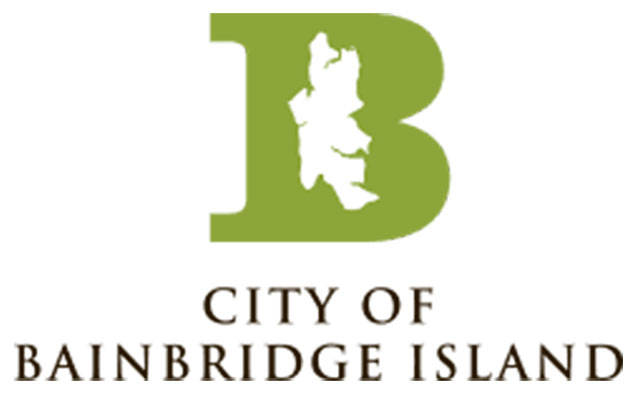Bainbridge Island’s Climate Change Advisory Committee will meet this week to talk about updates to the committee’s work plan for 2019-2020.
The two-year work plan includes a draft goal to reduce greenhouse gas emissions on Bainbridge Island by 90 percent by the year 2040 (compared to 2013 levels).
The draft work plan sets out the basis for the 90 percent goal. It says: “The urgency to dramatically reduce our greenhouse gas emissions is highlighted in a 2018 report from the Intergovernmental Panel on Climate Change that indicated in order to keep global temperatures below 1.5 degrees Celsius compared to post-industrial levels will require net zero global carbon emissions by 2050.”
The committee selected the year 2040 because it wanted to achieve the 90 percent goal earlier than 2050.
The advisory group is also suggesting interim targets of reducing greenhouse gases by 25 percent by 2023 and 60 percent by 2033 (compared to 2013 levels).
The year 2013 is important for the 2023 and 2033 goals because Cascadia Consulting Group, the city’s consultant that is conducting a greenhouse gas inventory, is using 2013 the baseline year for the island-wide study.
The interim targets of 2023 and 2033, according to the city, will also provide a 10-year “progress report” for Bainbridge.
According to the committee, the 2040 goal of 90 percent will be revisited after the close of the 2019 Legislative Session, and after the greenhouse gas inventory for the island is finished.
Several bills under consideration in the Legislature, and Bainbridge’s greenhouse gas inventory, may shed new light on the probability of meeting the targets, officials noted.
Other goals in the work plan include having Bainbridge Island adopt by 2020 “a formal process to evaluate all permits and expenditures for their climate vulnerability and a standardized approach to reduce that vulnerability.”
According to the committee, it eventually plans to propose additional goals.
One big piece is proposing goals for moving Bainbridge Island to “100 percent clean, renewable energy or dramatically reducing greenhouse gas emissions from transportation or establish green building standards for all island projects.”
The committee has also discussed how transportation impacts the amount of greenhouse gas emissions. Officials note that in Washington state, transportation is estimated to produce almost 43 percent of greenhouse gases.
The committee’s work plan for 2019-20 calls for actions in three areas:
• Public transportation;
• Electric vehicles; and
• Non-motorized transportation infrastructure.
Goals include increasing the number of electric cars on the island and developing more charging stations; encouraging the school district, city hall, Bainbridge parks district and Kitsap Transit to change over to electric vehicles;
Another priority for the committee is to work with the city council and others on a possible second try at a levy proposal that would pay for non-motorized transportation projects.
Bainbridge voters, however, soundly rejected a ballot measure last November for a $15 million levy that would have paid for roadside improvements for bicyclists and walkers.
Critics called the city’s SAFE Mobility Levy a “boondoggle” and a “blank check” and it fell to defeat during the 2018 General Election with a 54 percent “no” vote.
The Climate Change Advisory Committee was created by the city in 2017, and offers advice on issues related to climate change.
The committee will next meet at 6:15 p.m. Wednesday, April 17 in the council conference room at city hall.



